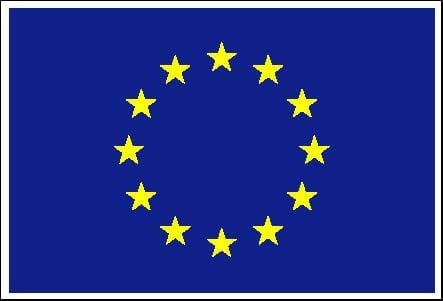The CEO of Europe's largest newspaper publishing company is charging that Google is seeking to build a  "digital superstate" free from the constraints of antitrust regulators and privacy concerns.
"digital superstate" free from the constraints of antitrust regulators and privacy concerns.
In an open letter to the Internet giant's Chairman Eric Schmidt, the CEO of Alex Springer writes, "We are afraid of Google. I have to say so clearly and honestly because hardly any of my colleagues dares to do so publicly.”
Writing in The Financial Times from Berlin Jeevan Vasagar reports:
Mathias Döpfner’s assault on Google begins on familiar terrain by lamenting the US tech company’s dominance of the search engine market, but shifts into broader anxiety about the extent of Google’s ambitions, including its development of driverless cars and purchase of dronemaker, Titan Aerospace.
He writes: “Google not only knows where we're going in our cars but also what we do while we’re driving. Forget Big Brother – Google is better!”
The letter is published in Wednesday’s edition of the Frankfurter Allgemeine Zeitung, an upmarket conservative daily which is not part of the Springer stable, and responds to a guest column in the same newspaper by Mr Schmidt.
The New York Times' Alison Smale describes the letter as the latest volley in a heating "trans-Atlantic war of words — and profits– over the future of the Internet." Smale puts the German publisher's letter in this context:
Mr. Schmidt’s remarks, published in the German media, were themselves a response to an attack by another German Internet entrepreneur, Robert M. Maier, who founded the Berlin start-up Visual Meta in 2008 and sold a majority stake to Springer in 2011, and published a long article titled “Fear of Google” on April 3.
While Mr. Döpfner was careful to stress his many years of contact with Mr. Schmidt, and indeed their recent deals not only to include Springer content in Google News but also to sell ad space — a deal Mr. Schmidt in his letter termed “path breaking” — there was no mistaking the fear, anger and puzzlement in the German’s attack…
“The discussion about Google’s power is not a conspiracy theory propagated by people mired in yesteryear,” he added, noting that Springer is making a big digital play and now reaps 62 percent of its profits from digital business. But he likened Springer’s relations to David against the Goliath of Google, whom he went on to accuse of harboring illusions of world domination.
Döpfner was critical of Google's proposed settlement to end the European antitrust investigation of the Internet giant. "This is not a compromise," Döpfner wrote. "This is the introduction sanctioned by an E.U. authority, of that kind of business practice which in less honorable circles is called extortion."
Döpfner said that the so-called concession in the proposed antitrust settlement in which Google would allow links to rival services to be displayed in its search results was "protection money."
“As the saying goes: ‘if you don’t want us to kill you, you’ll have to pay,’” the Springer chief executive wrote, according the The Financial Times,
The Guardian's Philip Ottermann wrote that Döpfner said there was a fundamental change in opinion about Google after the revelations of the NSA's massive snooping:
Döpfner argued that there had been a "fundamental shift in opinion" about Google among European citizens since Edward Snowden had revealed "close connections between big US online providers and the US intelligence agencies" last year. "No one knows as much about its customers as Google. Even private and business emails are read by Gmail and analysed if the need exists," he said. He described the view, which he attributed to both Schmidt and Facebook's Mark Zuckerberg in response to the NSA revelations, that "if you have nothing to hide, you have nothing to fear", as disconcerting.
"It stands for a mental attitude and a view of the world that is common in totalitarian regimes, not in free societies. The head of the Stasi or any other secret service in a dictatorship could have come out with a line like that."
 In one passage Döpfner speculates that Google may be planning to build offshore working environments to escape democratic accountability, according to The Financial Times: “Is Google planning to operate in a legal vacuum without the hassle of anti-trust regulators and data protection… does Google plan in all seriousness a digital superstate in which its citizens will naturally only do good and “won’t be evil”.”
In one passage Döpfner speculates that Google may be planning to build offshore working environments to escape democratic accountability, according to The Financial Times: “Is Google planning to operate in a legal vacuum without the hassle of anti-trust regulators and data protection… does Google plan in all seriousness a digital superstate in which its citizens will naturally only do good and “won’t be evil”.”
Döpfner said that Joaquin Almunia, the official leading the antitrust investigation, should ask himself whether he wants virtually his last important decision before stepping down this autumn to be an act “that would go down in history as the nail in the coffin of Europe’s already somewhat sclerotic Internet economy,” according to The New York Times.
"Will European politicians fold or wake up? Institutions in Brussels have never been as important as they are now," Döpfner asked.
I can only hope they hear Döpfner's powerful message









